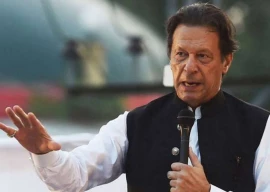
The Pakistani Management team of Lotte PPTA is fighting hard to keep a $500 million investment in Pakistan. Shuttling between the firm’s Korean parent and the Government of Pakistan, the team is desperately trying to salvage the company’s growth prospects in the country.
KP Chemicals is the subsidiary of South Korean conglomerate Lotte —the majority shareholder of Lotte Pakistan PTA—is considering moving a $500 million expansion of its PTA plant to another country in Asia or the Middle East. Unfortunately for Pakistan, this would deprive the country of one of its largest potential investments at a time when Pakistan desperately needs to establish its credentials as a place worth investing.
Industry and market background
Lotte PPTA is one of the best performing companies on the Karachi stock exchange. This is despite the fact that the Pakistan government has discouraged PTA production in Pakistan by lowering the protection level (from 7.5% to 3%) after the takeover by KP Chemicals. Lotte PPTA CEO Asif Saad says that this is a strange phenomenon in our country but insists that the company’s profitability has nothing to do with protection, and that is not why they are demanding it. “Our insistence on having 7.5% tariff on PTA is based on principle and international trends – and not on our wish to be rent seekers! Our parent company has the option of making this investment in China or India. Or it can take this plant to Saudi Arabia which has no income tax coupled with large amounts of feedstock paraxylene which can provide huge savings in logistics costs,” says Asif
“On the other hand”, Asif says, “In Pakistan income tax rate is almost 42%, it has one of the fastest escalating energy costs and supply issues, the highest logistics costs in the world thanks to infrastructure charges and monopolies given to private sector terminal operators and not to name the current political and economic environment. Against all these odds, if all we are asking for is that import tariff on PTA be at more or less the same level as in China (6.5%) — what is so wrong in this?” The company has been arguing this case since 2009/10 but its arguments have made little impression in Islamabad.
“What we argue against is complete disregard of international benchmarks”. Tariff protection is usually at the same level for both downstream and upstream industries as evidenced by China and India. Both countries have tariff structures that are almost equal for the entire product chain which consists of PTA, PSF (Polysester Staple Fibre), PFY (Polyester Filament Yarn) and PET (Polyethylene terephthalate).
Unfortunately in Pakistan, the policy makers do not wish to see this calculation which is why raw material (PTA) is given minimal protection while PSF, PET and PFY all get exorbitant amounts of protection. The policy makers are oblivious to the fact that PTA plants require much larger amounts of capital investment compared to the downstream sectors. Asif is highly supportive of the polyester sectors and says “we are all for protection to the polyester sector but all protection levels (including ours) must be in line with the rest of the world and especially where the largest markets for these products exist”.
The investment case
Some people say this investment is not needed in Pakistan as current PTA demand is almost met by local production (from Lotte PPTA) and 15-20% import. Lotte PPTA management disagrees and states that building a new plant takes almost three years — by which time we expect PTA demand in Pakistan to have increased by almost 30%. In addition, the company intends to target the Middle Eastern PTA buyers and generate exports of almost $300 million dollars. “Every way you look at it – the amount of FDI, import substitution, export earnings, technology transfer, employment generation — this is a fantastic investment for our country — and just imagine the mileage this would generate for Pakistan” says Asif.
Current situation
The Board of investment (BOI) has recently asked Lotte PPTA to provide its specific requirements if it were to bring this investment to Pakistan. A proposal consisting of tariff revision back to the 7.5% which existed till 2010, tax concessions and other general investment incentives have been submitted to BOI which is the only government department to have understood Lotte’s predicament from the beginning.
Lotte is also bringing out the big guns. They explain that an investment of $500 million cannot be made without appropriate incentives in place in any market in the world. The South Korean embassy in Islamabad supports their case and informed the Pakistani government that the case of Lotte is being closely followed by other Korean companies. In case Lotte is unable to bring this key investment to Pakistan, other Korean companies will be discouraged to do business in Pakistan. Asif smiles and says, “Maybe this is a case of Islamabad still living in the colonial world without realising that the economic powerhouses with the ability to invest are now in Asia!”
The Lotte PPTA management understands the dice is loaded against them. The country’s top economists oppose specific tariff concessions to anyone — which Asif says is fine if implemented across the board. Every other industry is a beneficiary of government policies in one form or another. The bureaucracy has shown its inability to take on powerful downstream lobbies and the politicians unfortunately have their hands full to give much attention to this subject. In the meantime, KP Chemicals has opened discussions with other countries to shift this investment to those markets. Lotte PPTA is trying to delay the final decision by its parent company in the hope that Islamabad will wake up in time. “We have not given up yet and continue to hope that someone in Islamabad will understand and do something about it soon,” says Asif Saad, albeit with a tone which does not convey this hope with much optimism. It just may be that the growth prospects of this industry in Pakistan are going, going...gone…
Published in The Express Tribune, September 12th, 2011.
COMMENTS (8)
Comments are moderated and generally will be posted if they are on-topic and not abusive.
For more information, please see our Comments FAQ





1725254039-0/Untitled-design-(24)1725254039-0-270x192.webp)
1732189200-0/Express-Tribune-(13)1732189200-0-270x192.webp)



1732186994-0/Untitled-design-(10)1732186994-0-270x192.webp)






@Umar: Brother what extile industry are you talking about. Value added industry is finished. These politicians are cotton growers...they exported all cotton and there was no availability of affordable yarn for Pakistani manufacturers. Value added industry has been squeezed. The reason they are not accommodating is because they don't know anything
@Muhammad Rabeel: I don't understand your point. If you don't facilitate investor how will you create jobs? Some socialist approach
I fail to understand policies of the government. One is forced to believe that government is being run by unprofessionals wearing suites.
Omair a good story. Pakistan has become a non-preferred destination for foreign or even domestic investments. This is an alarming situation and unfortunately crippling the economy fast.
This is plainly dissapointing. It just highlights the modus-operandi of our present government which has complete disregard for overall prosperity or growth of our country.
Furthermore I guess the highly influential Textile industry moguls, some of which are part of the government, have a great say in this particular case. Since availability of local PTA will lead to availability of Polyester at a cheaper rate thus affecting the cotton based textile industry.
Overall the above mentioned case of Lotte is just another case study of the incompetence of our government!
The point is if such benefits are possible in India,Saudi Arabia and china why Pakistan cant give some relaxations??i agree with Mr Mumtaz,if we give them some relaxations imagine how much job this investment will produce?their is a big number of highly skilled people waiting for jobs and they are being desperate,nobody thinks about them?what if this happens if this investment gone out other korian investor may not come here also as said in article.
I think it makes sense to move the investment somewhere else. I dont think it makes sense for the Korean company to pledge such an amount when the future is so unpredictable.
Though I think this is pressure tactit for getting some additional benefits, which I think should be given to all investors who create jobs for skilled and unskilled workforce. and I am a beliver that we should have industries that require skilled workforce so that our economy can benefit overall. some benefits should be given so that more industires are built here and we have import subsitution.